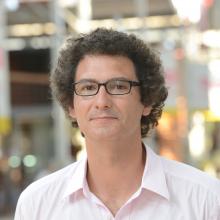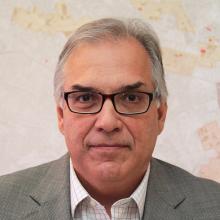Creative and Collaborative Cities
ROOM: Microcine
1st Thematic Session on Innovation
Organized by: Metropolis and Government of the City of Buenos Aires
The session focussed on the beneficiaries of implementing public policies for innovation in METROPOLIS cities. Cities have been greatly influenced by the social and economic changes resulting from globalization, the transformation of production models, and new technologies. The traditional models for growth and global positioning are being replaced by models based on the collaborative and knowledge-based economy, models which promote sustainable and human development, based on social and disruptive innovation. This model of development gives a central role to the creative and cultural industries, social initiatives, and the collaborative economy. As such, it is necessary to focus on specific actions in order to be able to boost this economy, so that it contributes more to the generation of employment and business.
Under the moderation of Mariano Mayer, Entrepreneurs Director-General of the Government of the City of Buenos Aires, the following experiences were shared:
• ‘Strategic decisions for a creative city’ by Félix Manito, Director of the Kreanta Foundation from Barcelona.
• 'Entrepreneur strategy with a social vision' by Jorge 'Yoyo' Riva, social entrepreneur from Buenos Aires.
• 'Policies for innovation: results and beneficiaries' by Yue Chaoyang, Deputy Head of the Zhi Gong Chinese Party, Guangzhou Committee.
• 'Multi-stakeholder collaboration for social housing' by João Octaviano Machado Neto, Executive Secretary for Public-Private Partnerships of the São Paulo State Housing Department.
During the speeches, the issue of local public policies for the promotion of the creative economy was tackled (support for entrepreneurs, the encouragement of business-friendly environments, business mentality, the creation of business incubators, the offer of training, etc.). It was agreed that in order to boost these sorts of economies, qualities such as a vision of the future, capacity to attract talent, and international co-operation are all necessary, amongst others. Meanwhile, it was pointed out that the keys that determine the creative leadership of a city are associated with factors such as education, innovation, diversity, inclusion, and values.











